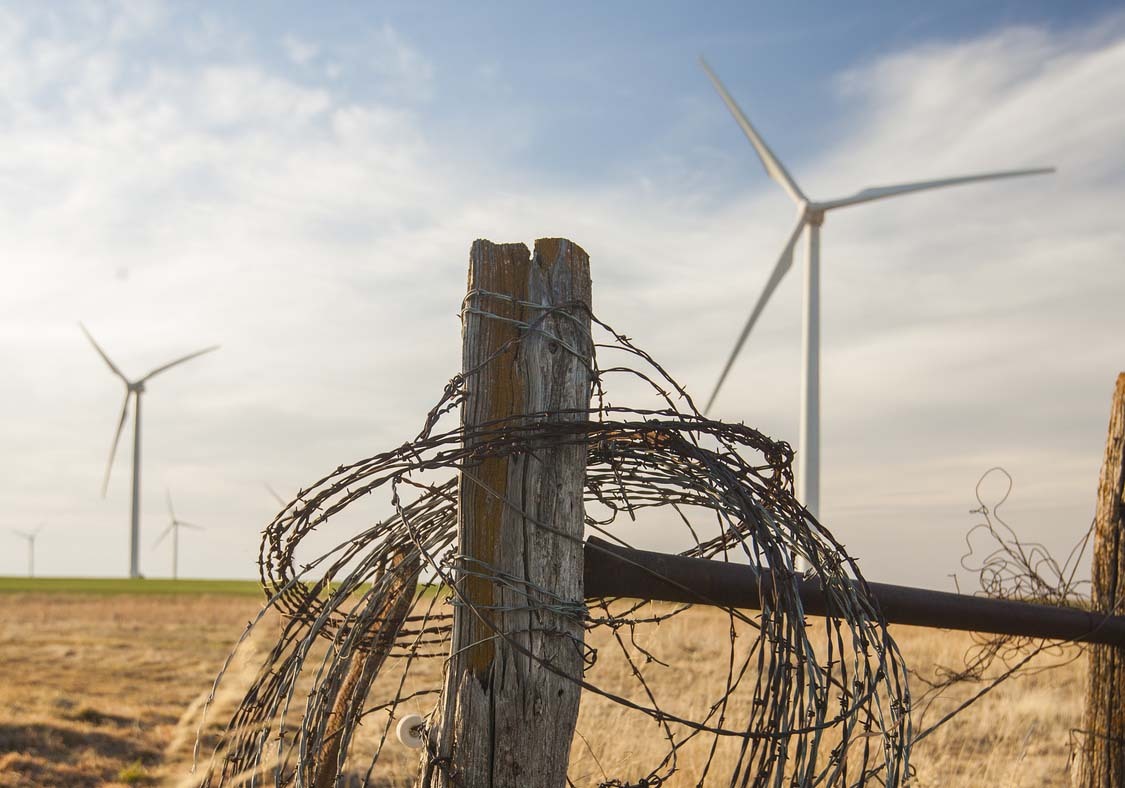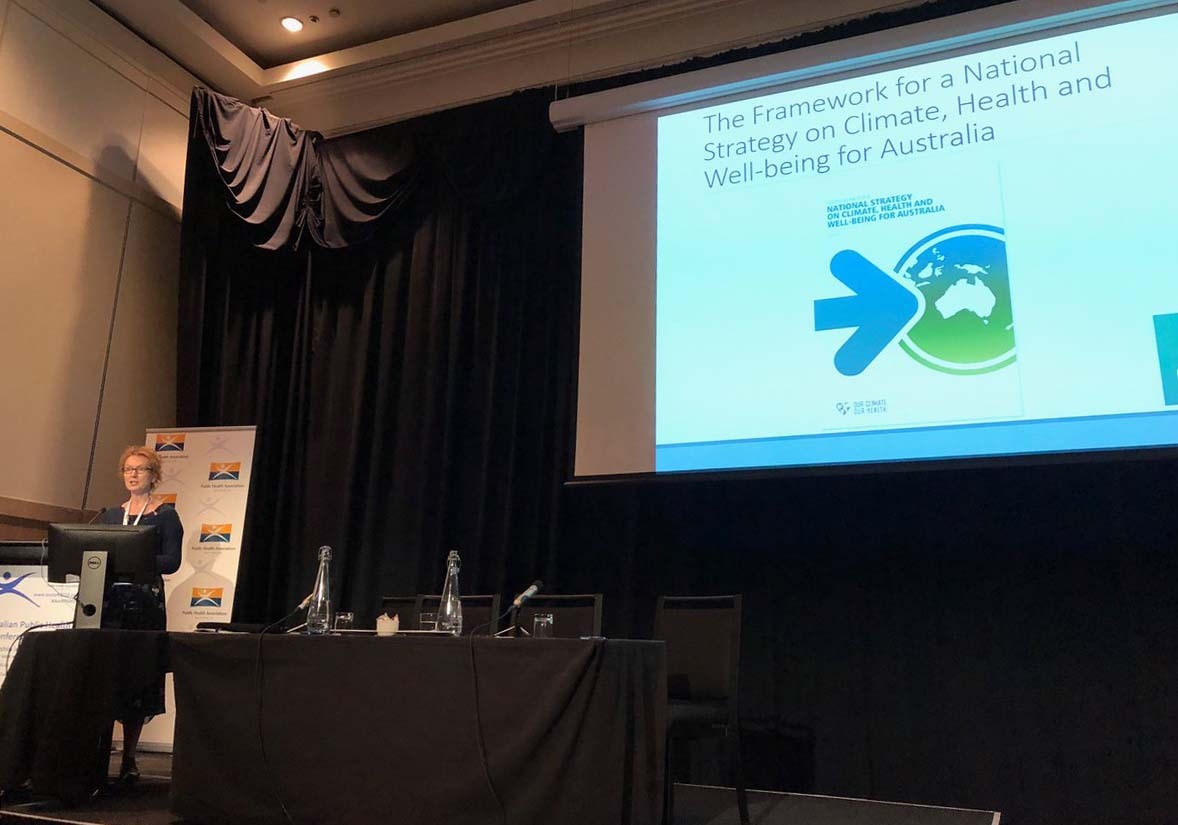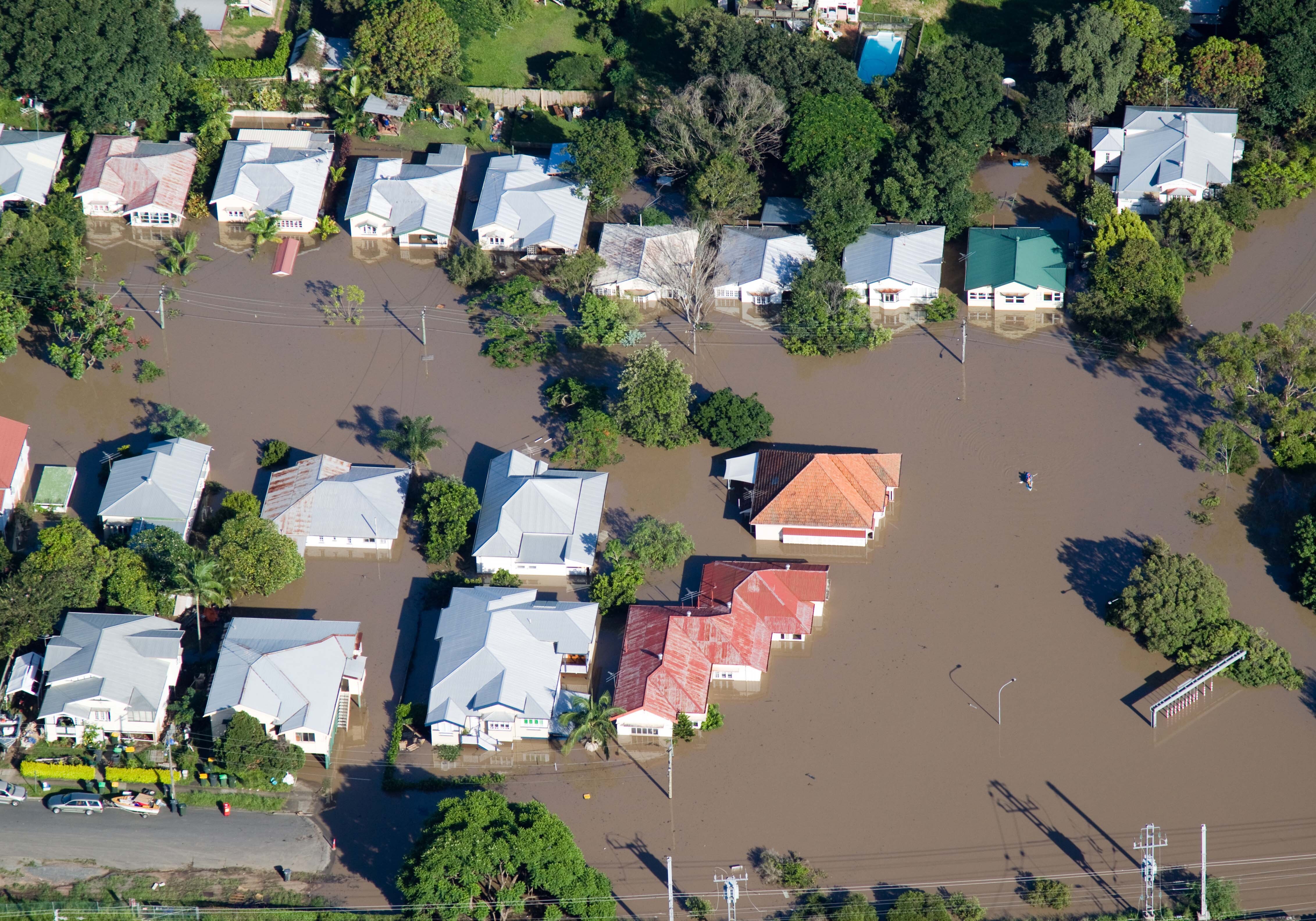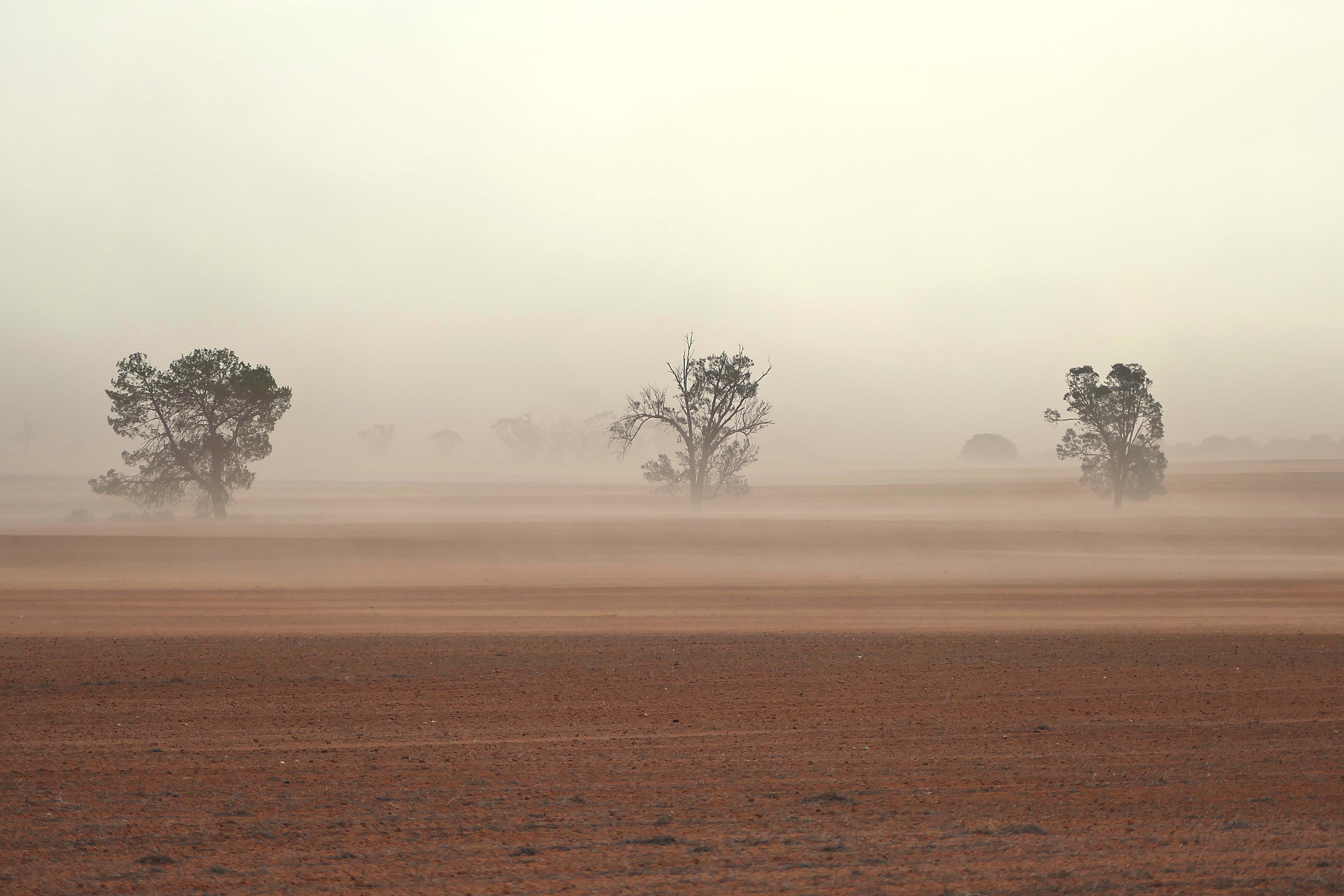This site may not work properly using older versions of Edge and Internet Explorer. You should upgrade your browser to the latest Chrome, Firefox, Edge, Safari, or any other modern browser of your choice. Click here for more information.
Your Stories
This is where we tell your stories, cover topical issues and promote meaningful initiatives.
Climate change and health
With a recent survey finding that more than half of the Australian health workforce are alarmed by how climate change is impacting health, CRANAplus is increasingly advocating for meaningful action.
The impact of climate change on health and the significant threat to those living in rural and remote communities has seen CRANAplus take several steps to highlight and influence the need for action.
With CRANAplus closely involved with rural and remote communities throughout Australia, our organisation is acutely aware of the substantial impacts already being felt.
The issues raised in a recent article in The Conversation concerning the Torres Strait Islands are just one example of this.
Drought conditions have already affected the security of water supply in the islands, requiring the installation of mobile desal-ination plants, and changes to temperature and rainfall have affected the range and extent of mosquito species that are vectors for dengue virus.
The article relates how traditional owners in the Torres Strait are worried that, if their connection to their lands disappears, their Indigenous culture will disappear. And medical personnel are concerned about climate-sensitive infectious diseases in the region.
Mental health impacts on the workforce
CRANAplus is uniquely positioned to provide insights into how such changes are impacting health professionals. As an organisation, we take the responsibility of escalating these insights seriously, and are busy ensuring the rural and remote workforce is given a voice in the climate health conversation.
“In July, we worked with Monash University and CAHA to provide case studies for a research paper on this very topic,” CRANAplus Education & Resource Lead Kristy Hill says.
“My key message has been that rural and remote health workers are impacted by climate change already. We have witnessed this firsthand with our work supporting health workers in drought and bushfire-affected areas, primarily from a mental health perspective,” Ms Hill says.
“During the bushfires, health workers experienced the loss of homes and infrastructure, and the trauma of living through bushfires. They also had to go back into workplaces and care for communities traumatised by bushfire.”
Where does the health workforce stand?
“Health professionals are concerned about the health impacts of climate change,” Ms Hill continues. “All the research shows that the vulnerable communities, including rural and remote communities, are at higher risk because of limited infrastructure, a reliance on environment to make our living, and many other factors.”
This concern has been quantified in recent research published by the Climate and Health Alliance (CAHA) within the ‘Real, Urgent & Now: Insights from health professionals on climate and health in Australia’ report.
CRANAplus is a member of CAHA, which consists of organisations which have come together to create a powerful health-sector movement for climate action and sustainable healthcare.
Their report outlined the results of a survey of 875 Australian health professionals, 45% of whom were nurses and midwives.
76.5% of respondents were ‘very interested’ in climate change. 53% of respondents said they were ‘alarmed’ by climate change and an additional 25% were concerned.
72% of respondents felt climate change was already having a ‘moderate to great’ impact on public health in Australia.
The most reported climate-related health issues respondents were already encountering were heat stress (58%), mental illness due to climate change (54%), respiratory illness from pollution (52%), bodily harm from bushfires (51%) and pollen-related allergies (51%).
88% of respondents said it was the responsibility of national, state and territory governments, along with business and industry, to protect people from health problems related to climate change.
The role of the health professional
Meanwhile, the same study found that 80% of respondents felt health services and health organisations should be leading the way on climate change action.
However, only 30% of respondents currently talk to clients and communities about climate health impacts. Of those who do not, 46% said they’re uncomfortable doing so, in part because they do not feel well enough informed or supported by their organisation.
“Rural and remote health professionals are concerned about it but don’t necessarily feel capable and confident to talk to their clients around climate change,” Ms Hill says.
She encourages readers towards CAHA’s Communicating the Health Impacts of Climate Change Resource, which is a helpful guide to support health workers to:
- Speak confidently about climate change and its health impacts.
- Recognise their unique authority to talk to the public, media, and decision-makers about the health benefits of climate action.
- Encourage health services, clinics, hospitals, offices, and other health care facilities to be environmentally sustainable.
- Promote actions that reduce emissions and support health, such as walking, cycling, or using public transport instead of driving cars; adopting a healthier, plant-based diet; or switching to renewable energy.
“I think most importantly, we need to reframe the conversation about climate change with family, colleagues and patients,” Ms Hill says.
“We need to be communicating that climate change is not a political issue. It’s a public health issue. That we as health professionals have seen firsthand the impacts of climate change on people’s health and that we need to act now to protect our families and our communities, especially in rural and remote areas.
CRANAplus’ Position
CRANAplus has outlined its own Position Statement on the impacts of a changing climate on remote health, calling for an investment in health services to better prepare communities, including strengthening surge capacity for responses to acute natural disasters.
Apart from the geographic factors which create isolation and limit access to health services, many rural or remote communities have a higher ageing population, meaning there is a greater prevalence of chronic health conditions. At the same time, jobs in agriculture, fishing, forestry and mining disproportionately expose workers to heat and other risks.
The CRANAplus Position Statement also outlines how the mental health of rural and remote communities is also directly affected, with reference to research, including a study formalising the fact farmers are subject to depression as a result of drought.
CRANAplus was a signatory of the #Healthy Climate Prescription letter in the lead up to the United Nations Climate Change Conference (COP26) in November 2021. The letter pointed out that the signatories felt an ethical obligation to speak out about the rapidly growing crisis that could be far more catastrophic and enduring than the COVID-19 pandemic.
The health harms listed in the letter include air pollution most significantly from burning fossil fuels, increasingly frequent extreme weather events including heatwaves, storms and floods, and the serious toll on peoples’ mental health.
In May 2021, CRANAplus was also a supporting organisation of an open letter to Prime Minister Scott Morrison, calling on the government to:
- Prioritise health in the context of Australia’s nationally determined Contribution to the Paris Agreement
- Commit to the decarbonisation of the healthcare sector by 2040, and to the establishment of an Australian Sustainable Healthcare Unit
- Implement a National Strategy on Climate, Health and Wellbeing for Australia.
Furthermore, CRANAplus endorses CAHA’s present campaign, Our Climate, Our Health.
Building from the finding that 98% of health care stakeholders want a National Strategy on climate, health and wellbeing in Australia, this campaign calls on organisations and individuals to attend events and undertake several helpful actions towards the development of
such a strategy.
CRANAplus is also keeping a keen eye on the development of a Climate Risk Module by the Australian Commission on Safety and Quality in Health Care (ACSQHC).
The voluntary education will outline key actions health organisations can take towards environmentally sustainable health care. At time of writing, it was being drafted and was expected to open for consultation in late 2021.
“At CRANAplus, we have a role to advocate on behalf of rural and remote health professionals and to lobby the government to take action,” Ms Hill says in conclusion.
“We are actively pursuing opportunities to drive meaningful change. This is just the beginning for us.”
Have a story about how climate change is affecting community health or the workforce where you work that you’d like to share with a wider audience? Contact us.
Read about our position on other issues affecting the workforce and the health of Australian communities or our Position Statements page.




